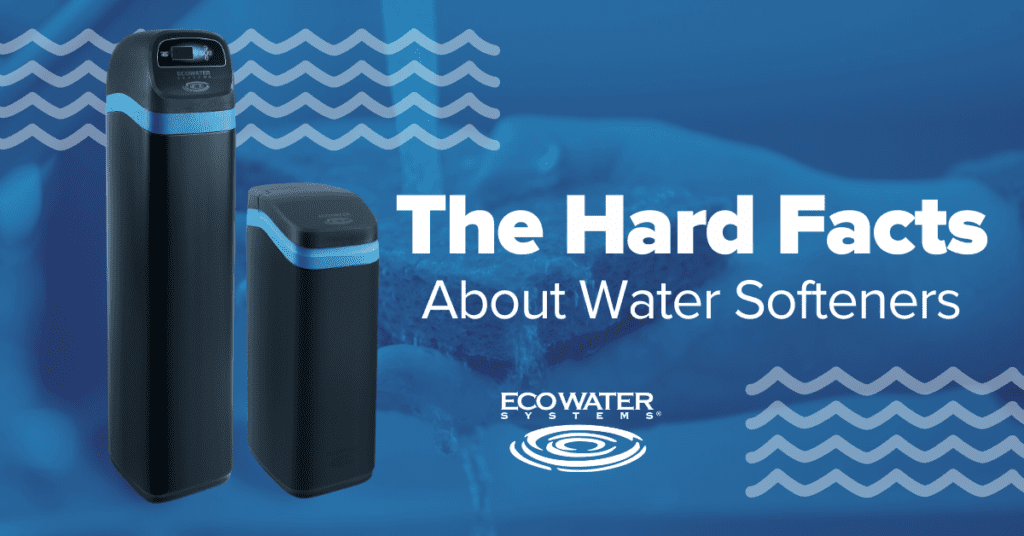A water softener is one of those things everyone has heard of, but most people don’t know much about. What do they do, and why do people need them? Well, the truth is this: not everyone needs them. Only most people do.
Water softeners are designed with a single purpose: to remove the calcium, magnesium and other minerals in your home’s water. These minerals, left to their own devices, can cause a highly visible, cloudy buildup on everything the water in your home touches, from appliances and fixtures to your plates and glasses. Even the clothes that run through your laundry can be affected.
At EcoWater, our team of experts knows water softeners in and out. So let’s take a moment and talk about what they do and how they can benefit your home.
..So water softeners remove minerals from my water. How?
The fact is, more than 89 percent of homes have hard water: Water that is full of minerals that can cause buildup on anything in which it comes into contact. A water softener will filter those minerals out, leaving you cleaner, clearer water. They work by sending water through two separate tanks, each with its own purpose: resin and brine.

The Resin Tank
The first tank is the resin tank, which contains resin beads, and each of these beads is covered in sodium particles. As the hard water moves over and through the beads, the sodium particles are replaced by calcium, magnesium and other minerals. These minerals grab onto the resin beads and stay there. The remaining water can then be sent to the rest of your home without any buildup-causing minerals in it.

The Brine Tank
The resin tank will eventually extract so many minerals from your home’s water that it will no longer be able to properly soften it. In order to regenerate the water softener, the resin will be rinsed in a salt solution inside the brine tank. This enables the water softener to rejuvenate itself, becoming once again ready to take on the task of removing minerals from your water.
Okay, so what’s the deal with softener salt?
If a water softener were a light bulb, softener salt is the electricity that makes it glow. Different water softeners require different kinds of softening salt, so it’s best to talk to a professional, like the crew at EcoWater, to make sure the salt you choose is right for your particular water softener.
It’s also important to check your water softener’s brine tank every few weeks to understand how much salt you use. The faster your home goes through the salt, the more salt you’ll need to use to keep your water crystal clear and mineral free.

Hard water doesn’t just affect appliances and dishes. It also affects you!
Yes, those minerals that cause all the buildup on your appliances, cutlery and dishware can also affect your body— specifically our skin health and overall appearance. When you shower or bathe in hard water, you never truly feel clean, and that’s because you aren’t. Hard water can leave a film-like residue on your skin, increasing the dryness of flakiness of your skin, as well as creating rashes and other skin irritations. It can even cause any color treatment in your hair to fade more rapidly.
What’s more, you’ll find yourself using more shampoo, soap or cleansers than normally necessary, as the hard water will prevent you from getting the proper amount of lather.
Okay, gross. How do I know what kind of water softener I should get?
The right water softener depends on how much water your household uses. An EcoWater technician can easily test your home’s water to determine exactly how hard it is. He or she can then combine that information with the number of people who live under your roof to help you understand which water softener to choose.


Recent Comments